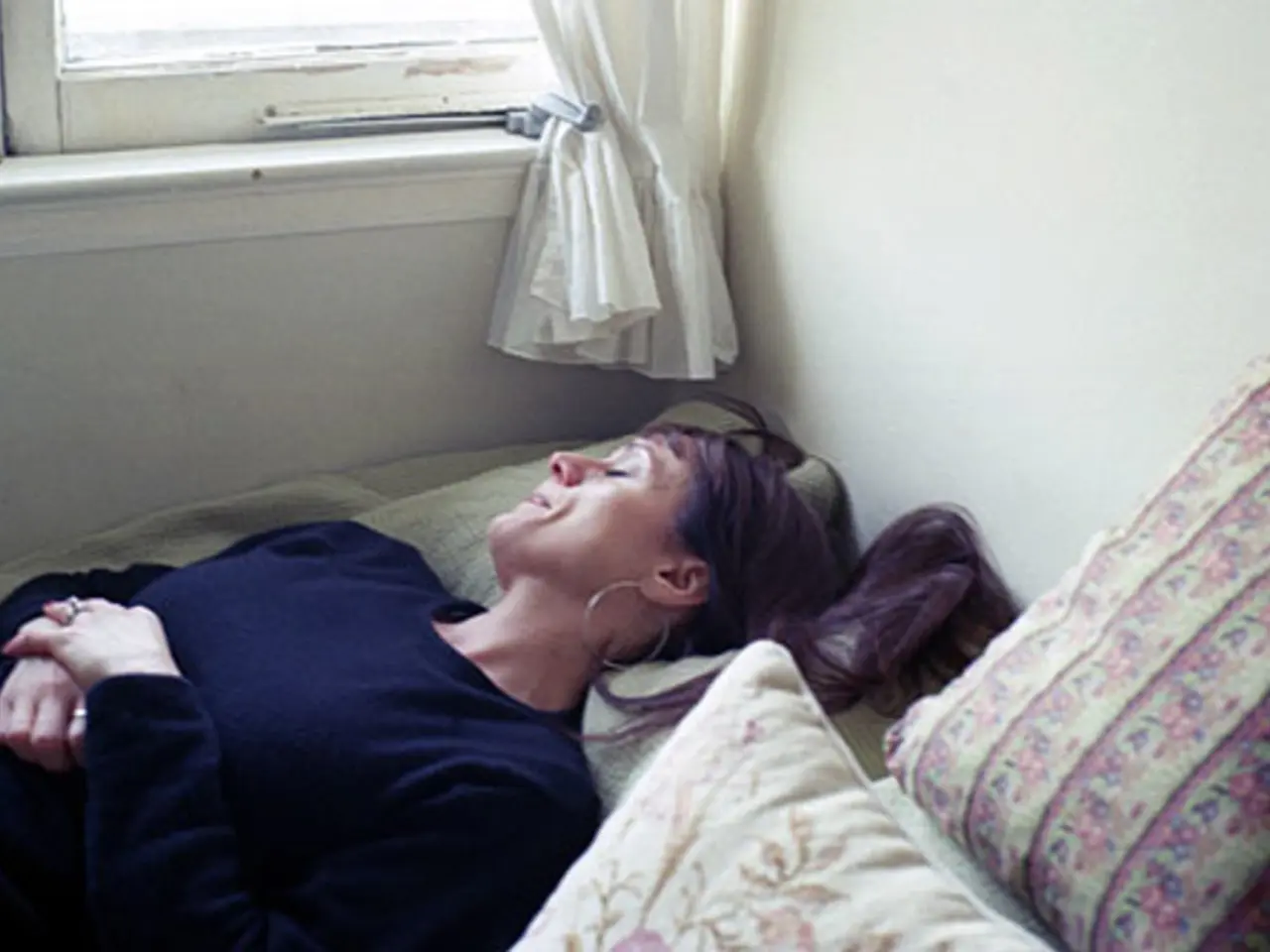Struggling with sleep due to an obsession? Orthosomnia, the modern-day affliction triggered by tech-stress, could be the culprit everyone's discussing.
Managing Orthosomnia: Breaking the Cycle of Obsessive Sleep Tracking
Orthosomnia, a modern sleep disorder, is characterized by an obsession with achieving 'perfect' sleep, often fueled by the use of sleep-tracking devices and apps. This condition can affect high-achieving or anxious individuals who closely watch their sleep through smartwatches, mobile apps, or rings, and start to believe they have a sleep issue, even when they feel fine [1][3][4].
Symptoms
Orthosomnia can cause sleep performance anxiety, preventing restful sleep. People who suffer from orthosomnia may constantly check their sleep-tracking data, especially upon waking, and feel anxious, stressed, or frustrated if the data suggests poor sleep, even when they have had enough rest [1]. Difficulty falling asleep or staying asleep caused by overthinking and sleep performance anxiety is another common symptom [1].
Causes
One of the main causes of orthosomnia is becoming dependent on sleep-tracking data. Perfectionist tendencies and the need to be in control play a huge role in orthosomnia. The term "Orthosomnia" combines 'ortho' (meaning correcting) and 'somnia' (meaning sleep) [1].
Treatment
To manage orthosomnia, it's recommended to take a step back and reduce time from sleep trackers, especially if they are making you feel anxious. Shifting the mindset from chasing perfect sleep to just getting enough rest that feels good and supports overall health is important [1].
Cognitive Behavioral Therapy for Insomnia (CBT-I) is effective for issues that seem to be staying, like high levels of anxiety, in managing orthosomnia [1][3]. Maintaining a constant but flexible sleep routine and using calming rituals such as deep breathing or mindfulness before sleep time can help manage orthosomnia [1][3].
Relaxation techniques, such as progressive muscle relaxation or mindfulness meditation, can also reduce anxiety associated with orthosomnia [3]. Sleep hygiene education is crucial to understand and improve healthy sleep habits without obsessing over data [3]. In some cases, medication for anxiety or sleep may be prescribed, but only after exploring behavioral treatments [3].
Creating a low-stress, digitally minimal bedroom environment supports better sleep [1]. It's essential to remember that sleep trackers can offer data that isn't always correct or consistent, causing confusion and increasing the sense that something may be wrong. Focusing on how you are feeling, not just what the data says, can help manage orthosomnia.
In summary, orthosomnia arises from stress and obsession over sleep-tracking data rather than from true sleep difficulties. Treatment focuses on breaking the cycle of anxiety and obsessive monitoring by behavioral changes, CBT, and improved sleep hygiene [1][3]. If you suspect you may have orthosomnia, consider speaking with a healthcare professional for guidance and support.
- Instead of chasing perfect sleep data, it's important to shift the mindset towards achieving sufficient rest that feels good for overall health and wellness.
- Mental health plays a significant role in orthosomnia, as anxiety and stress can lead to sleep performance anxiety and a fixation on sleep-tracking data.
- To treat orthosomnia, one can embrace relaxation techniques such as mindfulness meditation and deep breathing to reduce mental health-related stress and anxiety.
- In a health-and-wellness approach to managing orthosomnia, creating a rustic, digitally minimal bedroom environment can help foster a calmer, less stressful sleep environment, encouraging restful sleep.




